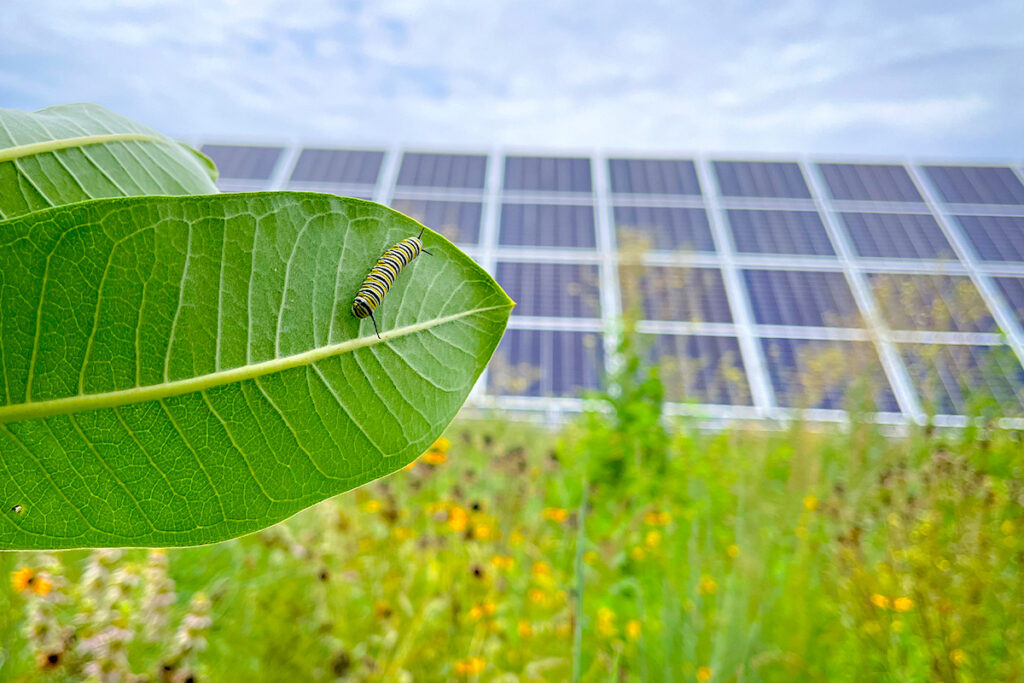At Solar Farms Planted with Native Vegetation, Insects Flourish

A monarch caterpillar on a common milkweed leaf at a solar farm in Minnesota. LEE WALSTON / ARGONNE NATIONAL LABORATORY
The following article, “At Solar Farms Planted with Native Vegetation, Insects Fourish” appeared originally in Yale Environement 360 Digest. It is reposted here with permission.
To reach its climate goals, the U.S. will need to build solar arrays on some 15,000 square miles of land, an area larger than Maryland. Growing native plants at these sites could give a much-needed boost to imperiled insects, a new study finds.
For the research, scientists at the Argonne National Laboratory and the National Renewable Energy Laboratory planted native flowers and grasses at two solar farms in southern Minnesota in early 2018. For the next five years, they regularly surveyed each site.
Over the course of the study, researchers found the number and variety of both plants and insects grew substantially. Particularly encouraging was the growth of pollinators, such as moths, butterflies, beetles, hornets, wasps, and bees.
The loss of grasslands across the continent has proved disastrous to native bees, with more than a quarter of North American bumblebees now threatened with extinction. The new study found that native grasses grown on solar farms were a boon to these bees. While the total number of insects grew threefold over the course of the study, the number of native bees multiplied by a factor of 20.
The results hold promise for farmers, as insects found grazing on wildflowers near solar panels were also seen alighting on soybean flowers on adjoining farmland. Researchers say that growing native plants at solar installations could help not only insects, but the crops they pollinate.
